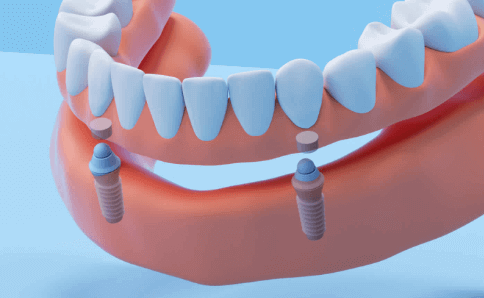We know how vital oral health is to our overall well-being. That’s why we’re exploring the most serious dental procedure – maxillofacial surgery.
This specialized type of oral surgery tackles skeletal issues in the face, jaws, and neck, often caused by trauma or functional concerns. Skilled surgeons work meticulously to achieve desired outcomes, making precise incisions and manipulating bones and soft tissues.
While there are many serious dental procedures that can be performed, the most serious is typically considered to be maxillofacial surgery. This type of surgery is performed to correct skeletal problems in the face, jaws, and neck. It may be necessary to treat conditions such as cleft lip and palate, jaw deformities, and injuries to the face. Maxillofacial surgery can be a complex and challenging procedure, but it can also be life-changing for patients.
If you are considering maxillofacial surgery, it is important to choose an experienced and qualified surgeon. Compton and Broomhead Dental Center is a leading provider of maxillofacial surgery in the area. Their team of experienced surgeons is dedicated to providing patients with the best possible care and outcomes.
Join us as we delve into the details of this intricate procedure and its significance in maintaining oral health and facial harmony.
TLDR
- Maxillofacial surgery is considered the most serious dental procedure.
- Apicoectomy is a serious dental procedure that involves removing the infected tissue and the tip of a tooth’s root.
- Apicoectomy is recommended when a traditional root canal treatment fails to eliminate the infection completely or when the tooth’s root structure is complex and difficult to access.
- The success rate of apicoectomy is high, with most patients experiencing complete resolution of symptoms.
Most Serious Dental Procedure
So, what’s the most serious dental procedure?
When it comes to serious dental procedures, maxillofacial surgery takes the lead. This type of surgery tackles skeletal issues in the face, jaws, and neck, often caused by serious injuries or functional and aesthetic problems.
The complexity of this surgery lies in the intricate work on the bones and soft tissues, requiring careful incisions and manipulation.
When it comes to serious dental procedures, one that often comes to mind is an apicoectomy. This procedure involves the removal of the tip of the tooth’s root and the surrounding infected tissue.
It’s typically recommended when a root canal treatment has failed to fully resolve an infection or when there’s a persistent infection in the bone surrounding the root.
Apicoectomy
One common serious dental procedure is the apicoectomy. This procedure aims to treat infections in the root tip of a tooth.
Some important facts about apicoectomy include:
- Apicoectomy is performed when a root canal treatment fails or isn’t possible.
- The success rate of apicoectomy is high, with most patients experiencing a complete resolution of their symptoms.
- The procedure involves removing the infected tissue, cleaning the area, and sealing the root tip.
Apicoectomy offers a successful and effective solution for treating persistent infections in the root tip, ensuring a healthy and pain-free mouth.
What is an apicoectomy?
Performing an apicoectomy is a common dental procedure that involves removing the tip of a tooth’s root to treat an infection or persistent inflammation.
When it comes to treating a dental infection or inflammation, there are several options available. Some people may opt for alternative treatments, but an apicoectomy is often recommended by dentists due to its high success rates.
In terms of cost comparison, an apicoectomy can be more expensive than other treatments, but its long-term effects make it a worthwhile investment.
Pain management during and after the procedure is carefully handled by the dental surgeon. Preoperative preparations involve discussing the procedure, risks, and expectations with the patient. Postoperative care may include pain medication and follow-up appointments.
Patient testimonials often highlight the importance of the surgeon’s experience and the advances in technology that contribute to the success of the apicoectomy procedure.
Why is an apicoectomy needed?
An apicoectomy is needed to address persistent infection or inflammation within a tooth’s root through the removal of its tip. This procedure is recommended when a traditional root canal treatment has failed to completely eliminate the infection or when the tooth’s root structure is complex and difficult to access.
- Success rates of apicoectomy: Studies have shown high success rates of around 90% for apicoectomy procedures, making it a reliable treatment option for persistent root infections.
- Alternatives to apicoectomy: In some cases, extraction of the tooth may be considered as an alternative to apicoectomy, especially if the tooth is severely damaged or if there are multiple root canals involved.
- Long-term effects of apicoectomy: Apicoectomy can provide long-term relief from tooth pain and prevent the spread of infection to surrounding teeth and tissues, promoting overall oral health.
How is an apicoectomy perform
To perform an apicoectomy, we carefully remove the infected or inflamed tip of a tooth’s root. This surgical technique involves making a small incision in the gum tissue near the affected tooth to access the root. The infected or inflamed tissue is then removed, along with a small portion of the root.
The success rates of apicoectomy are generally high, with most patients experiencing relief from pain and improved oral health. Post-operative care involves keeping the surgical site clean and following any instructions provided by the dentist.
Alternatives to apicoectomy include root canal therapy or extraction of the tooth. The cost and insurance coverage for apicoectomy may vary, so it’s important to check with your dental insurance provider. The long-term prognosis of apicoectomy is generally positive, but it depends on the individual case.
Dentists who perform apicoectomies receive specialized training and qualifications in oral surgery. Pain management during the procedure is typically achieved through local anesthesia. Pre-operative preparation usually involves reviewing medical history and discussing any concerns with the dentist.
Patient testimonials can provide valuable insights into the experience of undergoing an apicoectomy.

Risks and complications of an apicoectomy
We encountered several risks and complications during our apicoectomy procedure. It’s important to consider the potential risks and benefits of this dental procedure. Here are some key points to keep in mind:
- Common complications: Although rare, complications can occur during or after an apicoectomy. These may include infection, bleeding, swelling, or damage to surrounding structures.
- Long-term effects: The success rates of apicoectomy are generally high, but there’s still a possibility of recurrence or persistence of the original problem.
- Alternative treatments: Before opting for an apicoectomy, your dentist may explore other treatment options such as root canal therapy or extraction.
- Post-operative care: Following the procedure, proper care is crucial to ensure the healing process. This may include taking prescribed medications, avoiding certain foods, and maintaining good oral hygiene.
- Cost considerations: Apicoectomy can be costly, and it’s essential to discuss the financial aspects with your dentist or insurance provider.
- Follow-up appointments: Regular follow-up appointments are necessary to monitor the healing progress and address any concerns or complications that may arise.
- Patient experiences: Each patient’s experience may vary, and it’s important to communicate openly with your dentist about any discomfort or issues you may have during or after the procedure.
Recovery from an apicoectomy
Now let’s talk about the recovery process after an apicoectomy.
After the procedure, it’s common to experience some discomfort and swelling in the affected area.
It’s important to follow your dentist’s post-operative instructions, which may include taking pain medication and applying ice packs to reduce swelling
Other serious dental procedures
When it comes to other serious dental procedures, two that come to mind are root canal therapy and dental implant placement.
Root canal therapy is a procedure that involves removing the infected pulp from the tooth and sealing it to prevent further damage. Recovery from a root canal usually involves some discomfort and swelling, but it’s generally manageable with pain medication.
On the other hand, dental implant placement is a more invasive procedure that involves surgically placing a metal post into the jawbone to replace a missing tooth. The recovery period for dental implant placement can vary, but it typically involves a few days of discomfort and swelling, followed by several months of healing before the final restoration can be placed.
Root canal therapy
Recovering from an apicoectomy, a serious dental procedure, involves following specific post-operative care instructions. During the recovery process, it’s essential to be aware of certain aspects such as:
- Proper oral hygiene practices, including gentle brushing and flossing.
- Avoiding hard and chewy foods that may cause discomfort.
- Taking prescribed pain medications and antibiotics to manage any potential infection.
- Read also What Diseases Cause Dental Problems
Dental implant placement
We can ensure a smooth and successful recovery from dental implant placement by following specific post-operative care instructions. These instructions are crucial in preventing dental implant complications and promoting dental implant success.
It’s important to note that while dental implant failure is possible, it’s relatively rare. The dental implant procedure itself involves the placement of a titanium post into the jawbone, which serves as a foundation for the dental implant. Dental implant materials are designed to be biocompatible and durable.
The risks associated with dental implant placement are minimal, and the benefits, such as improved aesthetics and functionality, are significant. However, it’s important to consider dental implant alternatives and weigh the dental implant cost before making a decision.
Once the dental implant is placed, proper dental implant maintenance, including regular oral hygiene practices and dental check-ups, is essential for long-term success.
Frequently Asked Questions
What Are the Common Risks and Complications Associated With Maxillofacial Surgery?
Maxillofacial surgery, like any surgery, carries risks and complications. Common risks include infection, bleeding, and nerve damage. The recovery process may involve pain and swelling. Non-surgical alternatives should be considered for children and adults with functional or aesthetic problems. Anesthesia options depend on the complexity of the procedure. Post-operative care is crucial to minimize surgical complications.
How Long Does the Recovery Process Typically Take After Maxillofacial Surgery?
The recovery timeline after maxillofacial surgery varies, but generally includes pain management, swelling reduction, dietary restrictions, physical activity restrictions, post-operative care, follow-up appointments, complications prevention, oral hygiene, and consideration of psychological impact.
Are There Any Non-Surgical Alternatives to Maxillofacial Surgery for Correcting Functional or Aesthetic Problems With the Jaws or Face?
There are non-surgical alternatives for correcting functional or aesthetic problems with the jaws or face. Orthodontic options, non-invasive procedures, and corrective treatments can be used for jaw realignment, facial aesthetics, and rejuvenation.
What Type of Anesthesia Is Typically Used for Maxillofacial Surgery?
For maxillofacial surgery, different types of anesthesia can be used. Local anesthesia offers benefits like minimizing discomfort and pain management. An anesthesiologist plays a crucial role in choosing the right anesthesia and managing potential side effects. Advances in anesthesia techniques help minimize discomfort during complex surgeries.
Can Maxillofacial Surgery Be Performed on Children, or Is It Typically Only Done on Adults?
Maxillofacial surgery can be performed on children, not just adults. Early intervention in children can have long-term benefits and improved outcomes. A multidisciplinary approach is important, considering age and the psychological impact on children.



